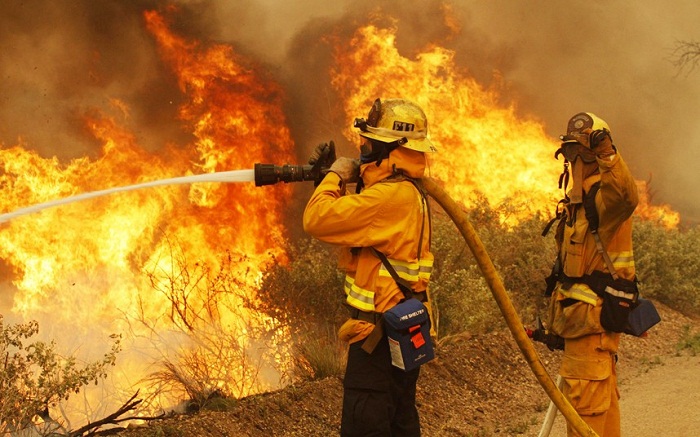Twelve wildfires are currently burning through the state, and the California claims 11,000 firefighters are battling the blazes. About 4,500 wildfires burned in the state in 2014 but there have already been 6,000 fires in 2015.
A fire that began Saturday in northern California, about 160 kilometers (100 miles) from San Francisco, has destroyed up to 1,000 buildings, including 400 homes. Speaking at the Governor`s Office of Emergency Services in Sacramento County, Gov. Jerry Brown told reporters that climate change was a major factor in this year’s rash of wildfires.
“There is no doubt that we need to de-carbonize our modern economy,” Brown told the crowd. “Fires are not political. Climate change is not political. It is real.”
Also fueling this season’s fires is a crippling drought that has stretched on for four years. A study released Monday finds that the snowpack that blankets the state’s Sierra Nevada mountain range was at its lowest level in 500 years.
The snowpack provides a crucial source of freshwater as it melts, but the levels found this spring were alarmingly low, according to researchers from the University of Arizona. Their report was published in the journal Nature Climate Change.
“We should be prepared for this type of snow drought to occur much more frequently because of rising temperatures,” Valerie Trouet, paleoclimatologist at the University of Arizona and one of the authors of the report, said in a statement. “Anthropogenic [caused by human activity] warming is making the drought more severe.”
The researchers specifically noted that the low snowpack does not bode well for the fire-prone state.
“This has implications not only for urban water use, but also for wildfires,” claimed study co-author Soumaya Belmecheri, in a release.
More about:















































